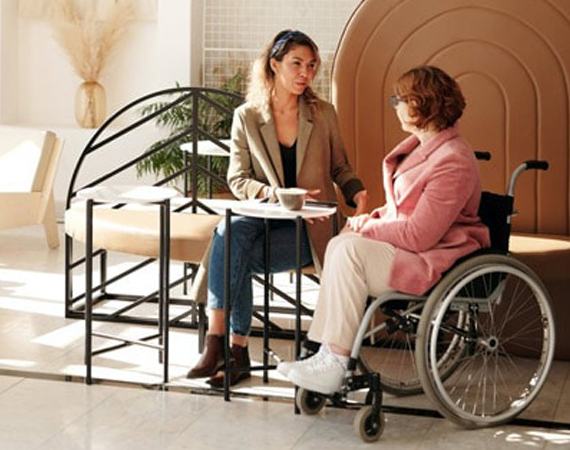Psychosocial Recovery Coach Services under the National Disability Insurance Scheme (NDIS) in Australia are designed to provide support and assistance to individuals with psychosocial disabilities. These services focus on enhancing social inclusion, promoting recovery, and improving overall well-being. Here’s a detailed description of Psychosocial Recovery Coach Services under NDIS in Australia:
- Recovery-Oriented Approach: Psychosocial Recovery Coach Services adopt a recovery-oriented approach, which emphasizes empowerment, choice, self-determination, and resilience. Coaches work collaboratively with individuals to support their recovery journey and achieve their goals.
- Individualized Support Planning: Coaches develop individualized support plans in collaboration with the individual, their support network, and relevant stakeholders. These plans address the person’s unique needs, preferences, strengths, challenges, and recovery goals.

- Building Life Skills: Coaches assist individuals in developing and enhancing essential life skills such as communication, problem-solving, decision-making, time management, budgeting, organization, and self-care. These skills promote independence and improve daily functioning.
- Social Inclusion and Community Engagement: Coaches support individuals in accessing social and community activities, building social connections, participating in recreational pursuits, and engaging in meaningful roles within the community. This promotes social inclusion, reduces isolation, and enhances overall well-being.
- Emotional Support and Coping Strategies: Coaches provide emotional support, active listening, empathy, and encouragement to individuals facing mental health challenges. They help individuals develop coping strategies, resilience, and self-management techniques to deal with stress, anxiety, and emotional difficulties.
- Goal Setting and Achievement: Coaches assist individuals in setting realistic and achievable goals related to their recovery, personal development, education, employment, housing, social relationships, and other areas of life. They provide guidance, motivation, and support to work towards these goals.
- Advocacy and Navigation: Coaches advocate on behalf of individuals with psychosocial disabilities, ensuring their rights are upheld, their voices are heard, and their needs are addressed within the NDIS system and broader community services. They help navigate complex systems, access resources, and overcome barriers to support.
- Linkage to Services and Resources: Coaches facilitate access to a range of support services, programs, resources, and community-based initiatives that are beneficial for individuals’ recovery and well-being. This may include mental health services, peer support groups, vocational training, housing support, and financial assistance.
- Monitoring Progress and Review: Coaches regularly monitor the individual’s progress, review their support plan, and evaluate outcomes to ensure that the services provided are effective, relevant, and responsive to the person’s changing needs and goals.
- Collaboration with Mental Health Professionals: Coaches collaborate with mental health professionals, clinicians, therapists, and other allied health professionals involved in the individual’s care to ensure coordinated and integrated support services.
Overall, Psychosocial Recovery Coach Services under NDIS in Australia play a crucial role in supporting individuals with psychosocial disabilities to achieve recovery, independence, social inclusion, and improved quality of life. These services empower individuals, promote resilience, and facilitate meaningful participation in community life.
